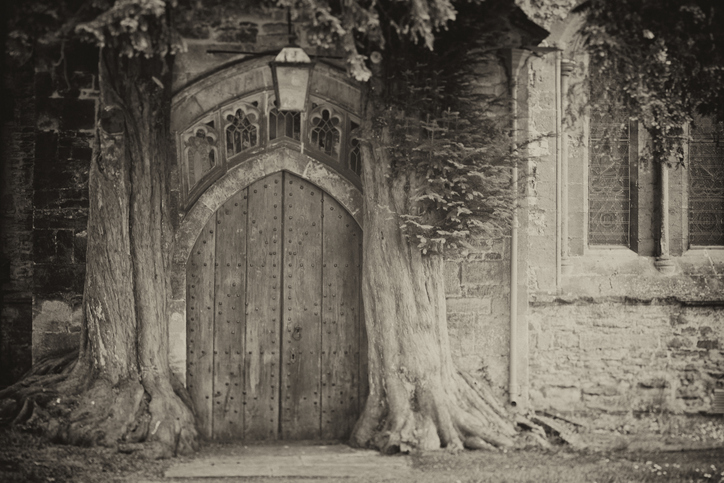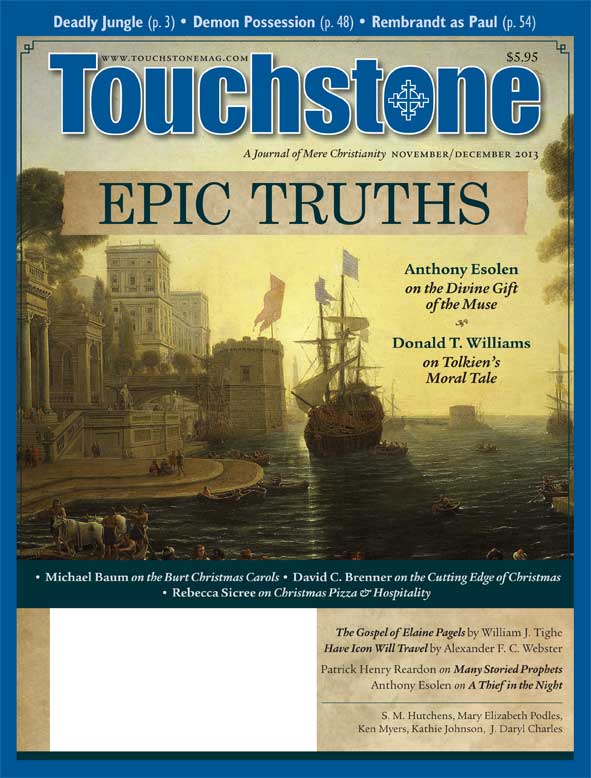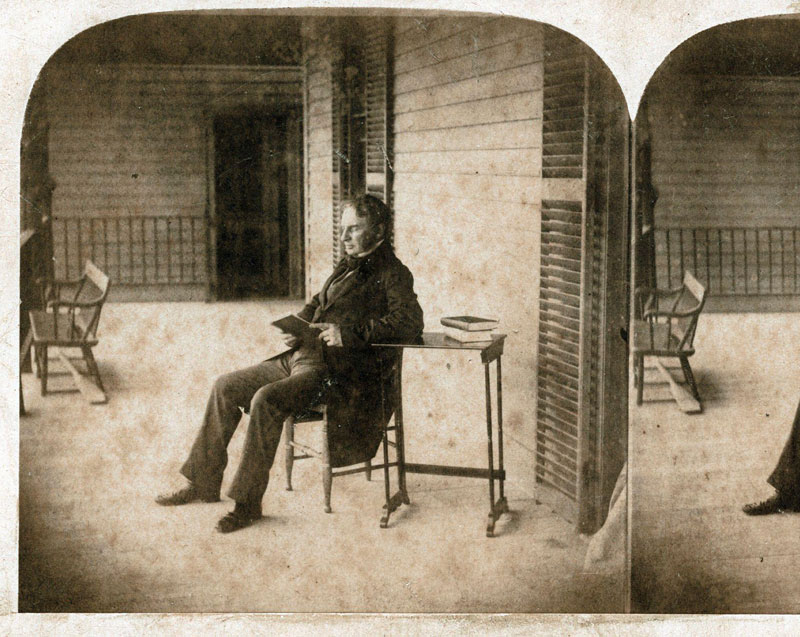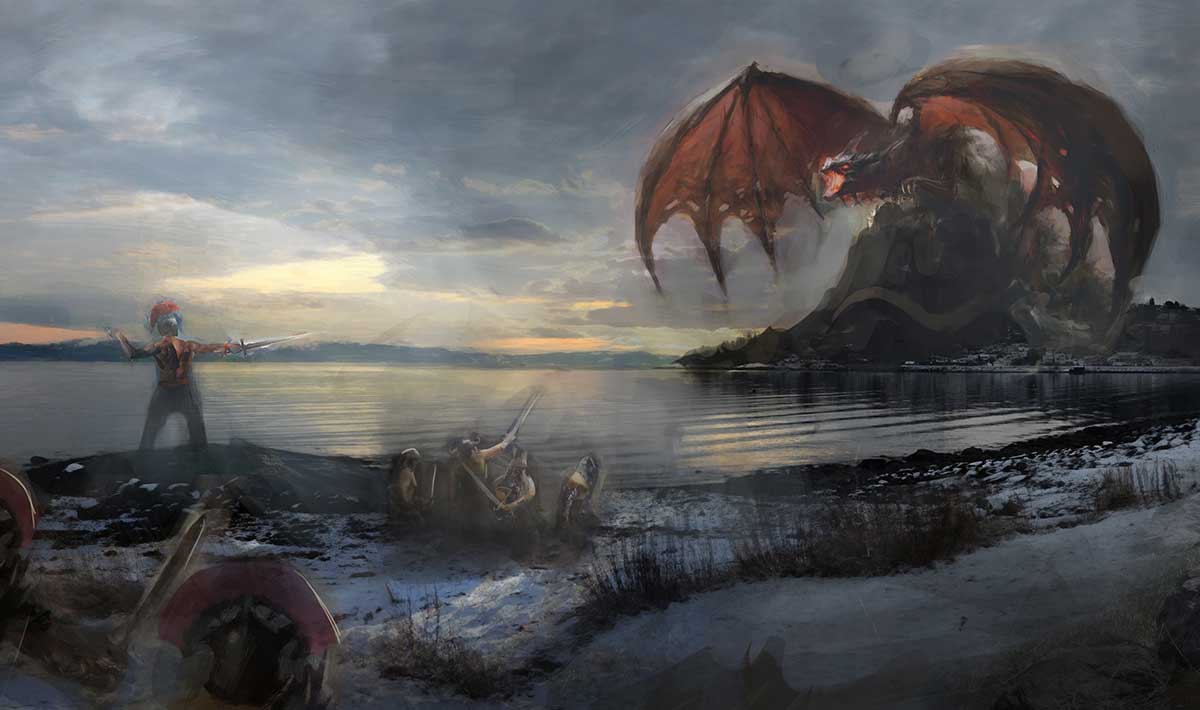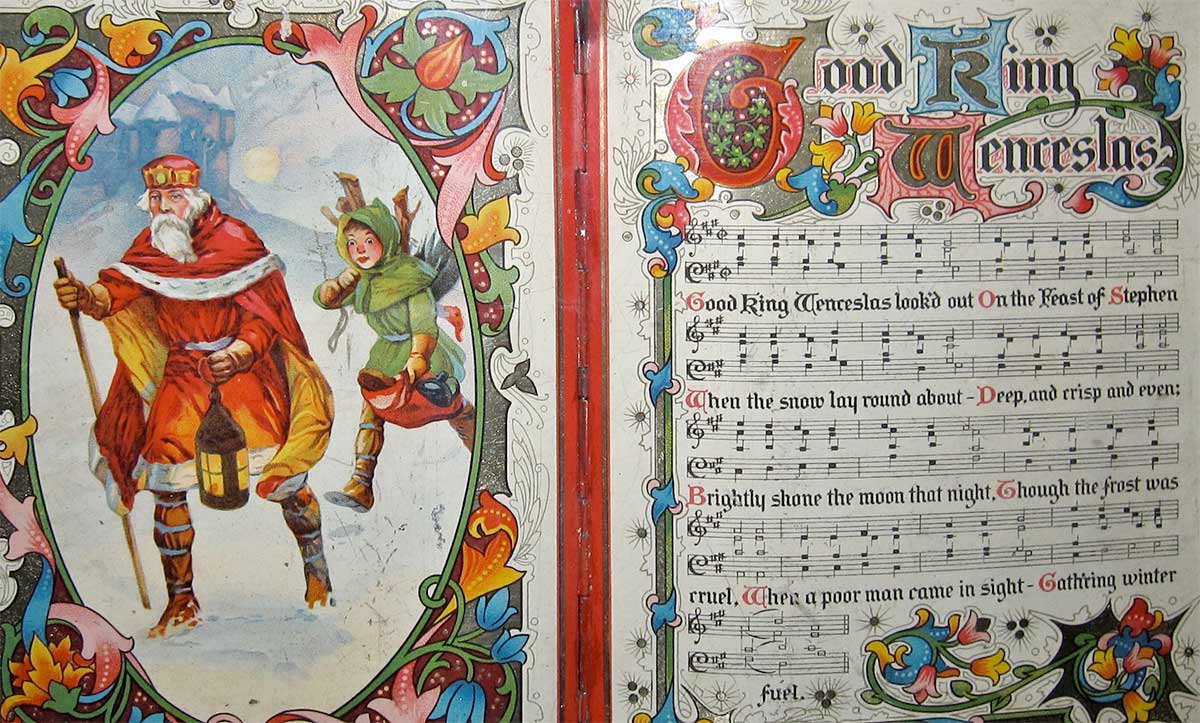View
The World of the Rings
Donald T. Williams on Why Peter Jackson Was Unable to Film Tolkien's Moral Tale
Why do the books and the movies of The Lord of the Rings seem to be two such different worlds, not physically but in terms of their moral vision? A sixteenth-century treatise on literary criticism, Sir Philip Sidney's Apology for Poetry, explains some of the discrepancy between J. R. R. Tolkien's and Peter Jackson's views of their task.
Sidney articulates an older vision of literature that Tolkien shared and built on. It is an explicitly Christian vision. The creative writer does not merely, as Hamlet put it, "hold the mirror up to nature." He is not just an imitator—the function that had caused Plato to banish the poets and their fictions from his ideal state. (By "poet," Plato, and Sidney after him, meant any creative writer, not just a writer of verse; etymologically, "poetry" is from the Greek poiein, "to make.")
Fiction, Plato assumed, imitates nature, which is already an imitation of the Ideas or the Forms that Plato held to be the ultimate reality. So fiction is an imitation of an imitation; thus, it is taking you one step further from the truth. But Sidney the Christian realized that something much more profound is going on. The poet is not just slavishly and imperfectly imitating nature. "Disdaining any such subjection, lifted up with the vigor of his own invention, [he] doth grow in effect another nature, in making things either better than nature bringeth forth, or quite anew."
The poet may thus actually take us closer to divine truth, rather than farther from it, than fallen nature can. (Because he is also fallen, he may give us false and corrupting images instead, but usum abusus non tollit; the abuse does not overturn the right use.) The poet has this potential to surpass nature in embodying the truth because he is created in the image of the Creator. We should therefore

give right honor to the Maker of that maker, who, having made man to his own likeness, set him beyond and over all the works of that second nature; which in nothing he showeth so much as in poetry, when with the force of a divine breath he brings things forth far surpassing her doings.
Tolkien follows Sidney explicitly, for in his essay "On Fairie Stories" he develops Sidney's insight and brings it to completion in his own doctrine of "sub-creation": Man is creative because he is made in the image of the Creator.
Used or misused, [our] right has not decayed:
We make still by the law in which we're made.
Both Precept & Example
One of Sidney's applications of this Christian theory of literature helps explain the difference between Tolkien's and Jackson's versions of Tolkien's legendarium. For one of the things that the poet can potentially do better than nature is to embody truth more faithfully in ways that are more than just intellectual. The poet, argues Sidney, achieves the end of learning, "virtuous action," better than either the historian or the philosopher. The historian gives you a concrete story you can relate to, but he is limited to what has actually been done; he cannot (as a historian) tell you what ought to have been done. The moral philosopher speaks of the ideal, but he speaks of it so abstractly that the average reader cannot follow it—the philosopher is "so hard of utterance and misty to be conceived, that one that hath no other guide but him shall wade in him until he be old before he shall find sufficient cause to be honest."
So the philosopher has the precept, and the historian the example—but "both, not having both, do both halt." They stumble and fall short of the ultimate goal of education: inspiring and enabling virtuous action on the part of the reader himself. But look, says Sidney, at what the poet can do:
Now doth the peerless Poet perform both. For whatsoever the Philosopher saith should be done, [the Poet] giveth a perfect picture of it in someone by whom he presupposeth it was done . . . a perfect picture, I say, for he yieldeth to the powers of the mind an image of that whereof the Philosopher bestoweth but a wordish description, which doth neither strike, pierce, nor possess the sight of the soul so much as the other doth.
Literature, then, has the serious moral purpose of providing role models that help us form the ideals and aspirations we live by; it achieves that purpose through concrete images of virtue and vice. Great literature is also fun; as Horace said, it teaches and delights.
But it does teach. Where in history or experience will you find a better picture of wise counsel than Gandalf, of sacrificial service than Frodo, of loyal friendship than Sam Gamgee, of leadership than Aragorn, of single-minded devotion in love than Aragorn and Arwen, of personal integrity than Faramir? I would hate to have had to live my life without the example and the inspiration that those characters have provided along the way.
Two Divergent Traditions
Hmm. It is no accident that these examples from The Lord of the Rings came first and unbidden to my mind, because Tolkien was very consciously and deliberately following the literary tradition that flows down to us from Sidney through Dr. Johnson and C. S. Lewis. As a result, Tolkien deliberately gave us characters that strike some moderns—including Peter Jackson—as too good to be true.
This is not an artistic flaw; it is central to Tolkien's creative purpose. How shall we enact Faramir's costly integrity in our own lives, for example, if we have never even imagined it to be possible? And how shall we so imagine it if we have never seen it in action? Tolkien's characters perform virtuous deeds that we probably could not perform ourselves—to the end that perhaps someday we can.
Peter Jackson, by contrast, comes from a more modern tradition that is suspicious of such moral didacticism and is more focused on "realism" (though this realism is somewhat inconsistently pursued, one might think, when it leads to a rabbit-drawn sledge that can travel over dry ground and doesn't need snow, as in Jackson's The Hobbit). Jackson apparently thinks the characters Tolkien gave us are too simply good to be fully believable to modern audiences, and so he feels obligated to "complicate" them, to give them internal conflicts other than the ones they actually have, in the hopes that we will better be able to relate to them.
Or so his consistent changes to Tolkien's characters would suggest. By this process, Faramir's "I wouldn't pick this thing [the One Ring] up if I found it lying in the road" becomes "Tell my father I send him a powerful weapon!" By this process, Aragorn becomes ambivalent about taking up his kingship rather than devoted to his calling with fixed purpose. By this process, Arwen actually contemplates deserting Aragorn and going to the Grey Havens to escape from Middle Earth despite their earlier pact, and he thinks she would.
By this process of negative moral transformation, in other words, we reach the place where beloved characters are unrecognizable to Tolkien's fans, and those fans feel betrayed. And they are right to feel so, though mostly they do not understand why. It is because the difference between the books and the movies is not just one of necessary adaptation to a different medium. It is that the author consciously followed the Sidneyan tradition while the adaptor is either ignorant of it or doesn't understand it or has rejected it.
I am not saying there is no legitimate place in literature for morally conflicted characters; an author can profitably show their development toward or away from virtue and portray its consequences—as Tolkien himself did brilliantly with Gollum, for example. I am saying that there is a place for the other kind of character Tolkien gave us; that it is an important place; that giving us such characters was in fact what Tolkien was doing; and that Peter Jackson is doing something very different.
The difference is not trivial. Jackson cannot imagine unwavering faithfulness, and so he gives us an Aragorn who actually thinks about Eowyn, and an Arwen who actually thinks about the Havens, as real possibilities that can be considered—very unlike the characters in the books.
Good Food for the Imagination
Tolkien, on the other hand, understood that we need to be able to imagine such things as real virtue and uncompromising integrity. And Tolkien could imagine such things. His guardian, Father Francis, fearing that the young Tolkien's love for his girlfriend, Edith, was distracting him from his schoolwork, forbade him from contacting her again until he was of age. Tolkien obeyed for three long, hard years, but he also arose from his bed at the very stroke of midnight on his twenty-first birthday to begin a letter to Edith the very second that it was permitted. Thus, he compromised not one whit either his submission to the man he believed was in legitimate authority over him or his devotion to
his lady.
Tolkien, in other words, could imagine an integrity like Faramir's and a love like Aragorn's and Arwen's because he had lived them himself. He was no doubt enabled to do so by the grace of God, but also partly because his imagination had been fed on literature that many moderns would consider hopelessly naïve, romantic—and didactic.
So, if you want to be able to live like Tolkien, you had better be able to imagine like Tolkien! Not that you will be able to create imaginary worlds like his, of course; no one has ever done that as well as he did. But you will want to feed your mind with the kind of moral imagery writers like Tolkien, Lewis, and George MacDonald themselves fed upon and provided in turn for us. They can help you do that in ways Peter Jackson cannot. And Tolkien was able so to help us partly because he understood and embraced Sir Philip Sidney's profoundly Christian understanding of literature and its purpose.
Oh, and read Sidney, too. For both Tolkien's doing and Sidney's explanation of that doing can strike, pierce, and possess the sight of the soul in ways that few others have ever matched. •
Donald T. Williams is Professor Emeritus of Toccoa Falls College. He stays permanently camped out on the borders between serious scholarship and pastoral ministry, between theology and literature, and between Narnia and Middle-Earth. He is the author of fourteen books, including Answers from Aslan: The Enduring Apologetics of C. S. Lewis (DeWard, 2023). He is a contributing editor of Touchstone.
subscription options
Order
Print/Online Subscription

Get six issues (one year) of Touchstone PLUS full online access including pdf downloads for only $39.95. That's only $3.34 per month!
Order
Online Only
Subscription

Get a one-year full-access subscription to the Touchstone online archives for only $19.95. That's only $1.66 per month!
bulk subscriptions
Order Touchstone subscriptions in bulk and save $10 per sub! Each subscription includes 6 issues of Touchstone plus full online access to touchstonemag.com—including archives, videos, and pdf downloads of recent issues for only $29.95 each! Great for churches or study groups.
Transactions will be processed on a secure server.
more on J. R. R. Tolkien from the online archives
more from the online archives
calling all readers
Please Donate
"There are magazines worth reading but few worth saving . . . Touchstone is just such a magazine."
—Alice von Hildebrand
"Here we do not concede one square millimeter of territory to falsehood, folly, contemporary sentimentality, or fashion. We speak the truth, and let God be our judge. . . . Touchstone is the one committedly Christian conservative journal."
—Anthony Esolen, Touchstone senior editor





